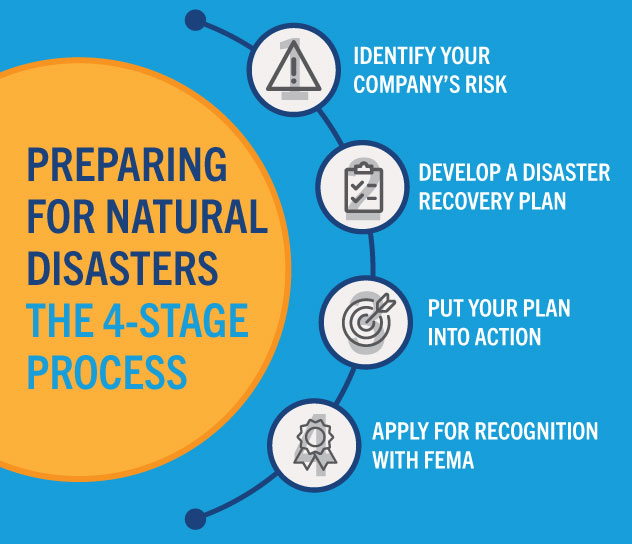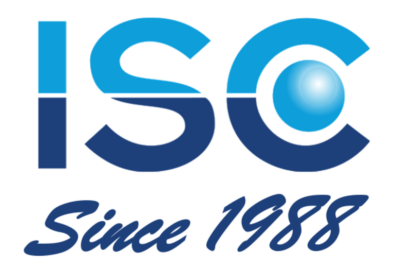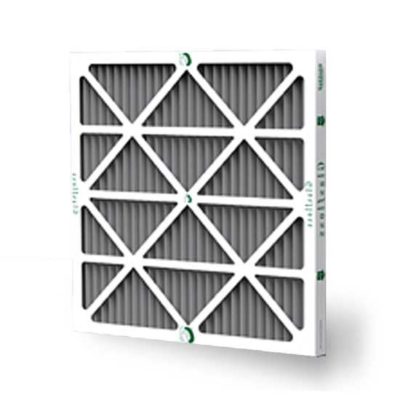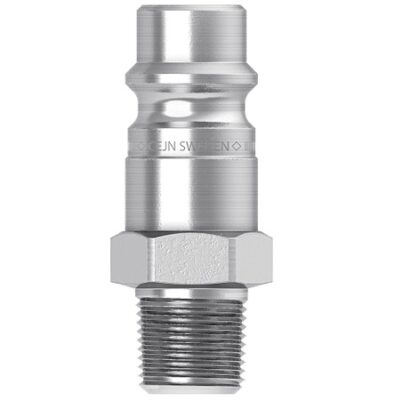Making sure your business is prepared for hurricane season or another natural disaster will ensure the best possible protection for your staff members and your property during these dangerous storms. According to statistics collected by the Institute for Business and Home Safety, an estimated one-fourth of all businesses do not reopen after a major disaster. Guaranteeing your business is part of the successful 75 percent requires careful planning. Here are some of the most important strategies for preparing for natural disasters in the future.
Table of contents
Types of Natural Disasters

The U.S. Department of Homeland Security (DHS) has compiled a list of the types of natural disasters that can strike various areas of the country. Along with hurricanes, which pose a significant risk to life and property, DHS has identified the following as the most serious natural disasters, your business continuity plan should include provisions for any of these natural disasters that may occur in your area:
- Winter storms can disrupt traffic, create power outages and cause communication systems breakdowns. These issues can pose a significant risk to human life and safety.
- According to DHS, 90 percent of all natural disasters in the U.S. include some degree of flooding. This results in the greatest amount of loss of life, injuries and property damage. Hurricanes are often responsible for flooding in the areas affected by these storms.
- Earthquakes seldom cause loss of life in the United States. These events can cause fires and disruptions to electrical service as well as water supply issues in the areas in which they occur.
- Wildfires can cause loss of life and property damage. In some cases, smoke inhalation is an issue for those residing in the area of the storm.
- DHS indicates that over 1,000 tornadoes occur in this country every year. The damage caused by tornadoes can be extreme and can cause loss of life, especially when storm warnings are not heeded or when the tornado develops quickly and with little advance indication of trouble.
The Basics of Natural Disaster Preparation

The Federal Emergency Management Agency, better known as FEMA, has created a checklist for businesses to assist in preparing for hurricanes and other natural disasters. The recommendations begin with a four-stage process:
- Identify your company’s risk of damage to property, disruption of operations and potential injuries to employees during hurricane conditions and when other natural disasters strike.
- Develop a disaster recovery plan to minimize these risks and to protect your property and your operations against damage and disruption.
- Put your plan into action by obtaining the equipment and the alternate worksite options necessary to continue your operations and to maintain safety on your worksite.
- Apply for recognition as a Ready Business with FEMA and take your place as part of the Ready Business Community.
The first three of these steps are essential to begin the process of natural disaster preparedness for your company. The last is to be completed after your plan is in place.
Identifying Risks

Assessing your company’s risk of catastrophic damage in a hurricane or other natural disaster requires a look at the history of your area in terms of these major storms, the nature of your business and the configuration of your buildings and facilities. Added factors to consider include your dependency on electricity, internet connections, and communications to carry out your regular operations. According to FEMA, some of the most important questions to ask during the risk identification process include the following:
- Can your company continue to operate without access to buildings damaged or rendered unusable by hurricanes or other disasters?
- Do you have a plan in place to notify employees, vendors, and customers about the status of your operations?
- Do you have backup vendors and suppliers if your current vendors are rendered inoperable after the storm?
- Do you have a disaster recovery plan in place to establish priorities for recovering equipment, inventory and other items of value from your property after a hurricane?
- For retail operations, can you ship orders from an alternate location if your current location is damaged and cannot be used?
Incorporating the answers to these questions into your risk management plan is essential to weather the storm or disaster successfully.
Developing a Plan

FEMA has identified six steps that will assist you in preparing for hurricanes and other natural disasters as a business owner:
- Create business continuity plans, including crisis communications procedures that ensure clear lines of contact between your company, your employees, your vendors and your customers.
- Boost awareness for your employees about the appropriate procedures to follow if a hurricane is on the way or has already occurred.
- Establish a plan for assisting employees with evacuating or sheltering in place. If sheltering in place is a possibility, create an emergency supply kit for your business.
- Conduct a training session for your employees on all procedures to follow during and after a hurricane.
- Schedule a natural disaster drill for your business.
- Make sure that you have the right insurance policies in place, and create a comprehensive inventory of all equipment, inventory and other items in your business location.
Your natural disaster preparedness plan should include provisions for staff members, surroundings, space, systems, structure, and service. These six elements are critical to your continued success and will promote the best results for your company to resolve from natural disasters.
Acting on Your Plan

Putting the elements of your plan into action before a hurricane is predicted or a natural disaster occurs is essential to promote the best state of readiness for your company. This includes training, equipment, structural alterations and flood protection measures to promote the safest and most practical solutions for your facility. Some of the measures recommended by FEMA include consulting with a professional engineer to evaluate the following structural elements:
- Load path and elevation of your company
- Roof systems
- Skylights
- Bracing for gable-end walls
- Noncombustible gutters and downspouts
- Wall strength and integrity
- Soffit supports
- Exterior doors, windows and garage doors
- Floodproofing capabilities
Systems should also be reviewed and evaluated by an engineer to determine their ability to resist a hurricane, earthquake or other damaging events. These systems include the following:
- Fuel tanks and generators
- Electrical wiring and systems
- Communications equipment, including antennas
- Rooftop structures
- Potable water, sewer and water management systems
- Lighting and mechanical systems
Ensuring that these systems and structural elements are ready for the high winds and dangerous water surges that can accompany a hurricane, a tropical storm or some other natural disasters can be a key element of your preparedness plan and will allow you to enjoy the best chance of riding out a hurricane with minimal damage and disruption.
The Right Equipment and Supplies

The National Hurricane Survival Initiative recommends that you obtain supplies and equipment for your business in preparation for hurricanes or other predictable natural disasters. The checklist provided by this organization includes the following items:
- A battery-operated radio or television
- Enough non-perishable food for you and your employees for three days
- At least one gallon of water per person for three days
- A first aid kit and manual
- Blankets, cots, and pillows
- Flashlights and batteries
- A signal flare
- Cell phone power banks that have been charged and are ready for use
- Tarps, plastic bags and sealing tape
- Fire extinguishers
- An electric generator and fuel
- A basic tool kit
Working with an established and knowledgeable industrial products supplier is the best way to find the generators best suited to your hurricane and natural disaster preparedness needs. ISC Sales is a leading source of information and support in choosing the right generator for your business and to promote the best solutions for your specific set of requirements.
Continuity of Operations

Hurricanes and other natural disasters are serious threats to your business operations. Creating a business continuity plan and an impact analysis is a complex undertaking that will require a significant amount of time and effort to complete. Creating a team that will be tasked with creating this plan will help you to produce a business continuity plan that works for your specific set of needs. Some of the most common steps in this process include the following:
- Performing a business impact analysis that evaluates the critical functions and activities throughout your organization
- Identifying resources that are required to maintain your operations
- Documenting the process and the findings of your business continuity team and sharing these findings with key members of your team
- Creating a recovery and continuity plan
- Training your team and testing your plan in simulated exercises
- Adjusting and editing your business continuity plan as needed to provide the most effective and practical support for your operations
Your business continuity plan should include provisions for a number of key elements within your organization:
- Equipment and operations at your current location or at an alternate site
- Financial disbursements and electronic payment systems
- Communications, technology, and power
- The welfare of personnel sheltering in place or choosing to evacuate to an alternate location
- Facilities, especially repairs and evaluation of damage
In most cases, business continuity plans should be focused on returning to normal operations as quickly as possible, ensuring the welfare of personnel returning to work and providing the resources needed to restore business functionality to your current site or in an alternate location.
Protecting Your Business Interests
Once your natural disaster preparedness process is underway and you’re working on your business continuity plan, it’s time to consider the equipment you will need to maintain operations in your current location or to make arrangements for continuing your business activities in an alternate location. If you choose to stay, making sure your business premises are well lit and appear occupied will deter most looters and vandals, which will keep your facility safer during and after the storm. Industrial supply companies like ISC Sales can provide you with expert guidance on choosing the right generators for lighting and powering your business during hurricanes and other natural disasters. We offer an extensive lineup of equipment designed with your needs in mind.
Special Requirements for Hospitals and First Responders

Hospitals and other healthcare facilities are usually required to create and implement an emergency plan to care for patients during hurricanes and other natural disasters. Both evacuating and remaining have benefits and drawbacks:
- Evacuating patients from the hospital could put stress on some patients and increase their risk of relapse or further injury. Additionally, this process is costly and requires careful planning and a relationship with the admitting hospital at the other end of the evacuation process.
- Sheltering in place will put staff members and patients at risk if the hurricane does damage to the hospital building, its power source or other critical functions within the facility.
Regardless of whether the hospital is evacuating its patients to another location or remaining and attempting to ride out the storm, hospitals typically maintain at least a minimal staff to provide help for those who may have been injured during the hurricane. Reliable generators are required to provide power for respirators, ventilators and other medical equipment that may be needed during the storm. In most cases, hospitals will reduce their power use to the absolute minimum required for safety and health. This may include reducing light levels, shutting down certain areas of the hospital and offering emergency services only for walk-in patients.
Police stations and fire departments may also be required to remain during a hurricane. Commercial standby, diesel, and portable generators are among the available options that can keep the lights on in these facilities during hurricane season. Stable communications methods are also required for hospitals, police officers and firefighters to ensure that they receive important information as soon as it is available.
The Right Partner for Natural Disaster Preparedness

At ISC Sales, we specialize in creating expert industrial solutions for our customers. We are based in North Texas and are the exclusive North American stocking distributor for Panasonic Rotary air conditioning compressors. Our team has built its reputation on the best customer service and the most practical solutions for our customers. We stock a wide variety of portable and commercial standby generators as well as UltraTech storm/water management products to help your business weather the storm safely. We can provide you with the right generator recommendations to keep the lights on and to protect your business interests.
If you are looking for the most practical assistance with your natural disaster preparedness plan, call ISC Sales today at 877.602.0010 to get a free quote or to ask about our lineup of generators and industrial equipment. You can also request a quote online, HERE. We offer immediate help during our regular business hours with no voicemail and no extended hold times. At ISC Sales, we are here to serve you.
There’s a lot to consider when preparing your business for a natural disaster. Download our helpful NATURAL DISASTER PLANNING FOR BUSINESSES printable guide to ensure you are taking the right measures.
Sources:
1. https://www.sba.gov/business-guide/manage-your-business/prepare-emergencies
3. https://hurricanesafety.org/prepare/prepare-your-business/
4. https://www.ready.gov/business/implementation/continuity
5. https://ithandbook.ffiec.gov/it-booklets/business-continuity-management.aspx




